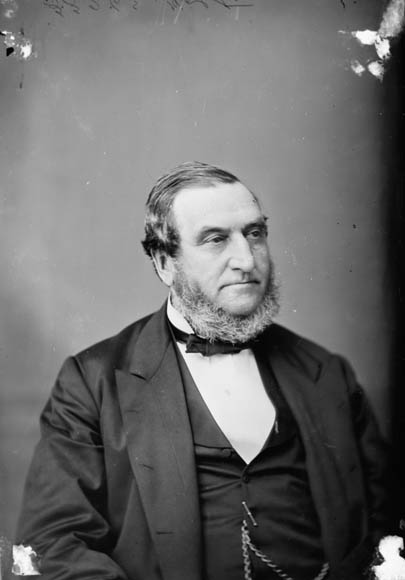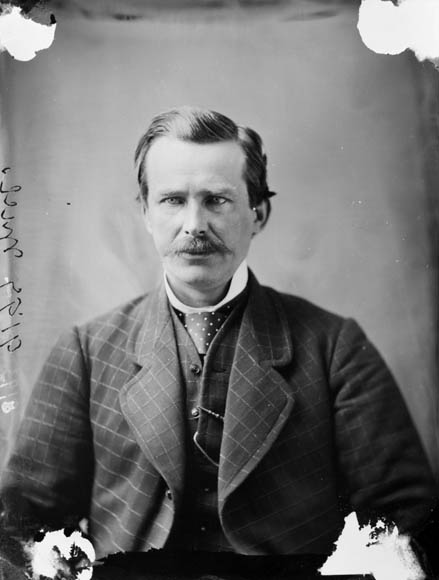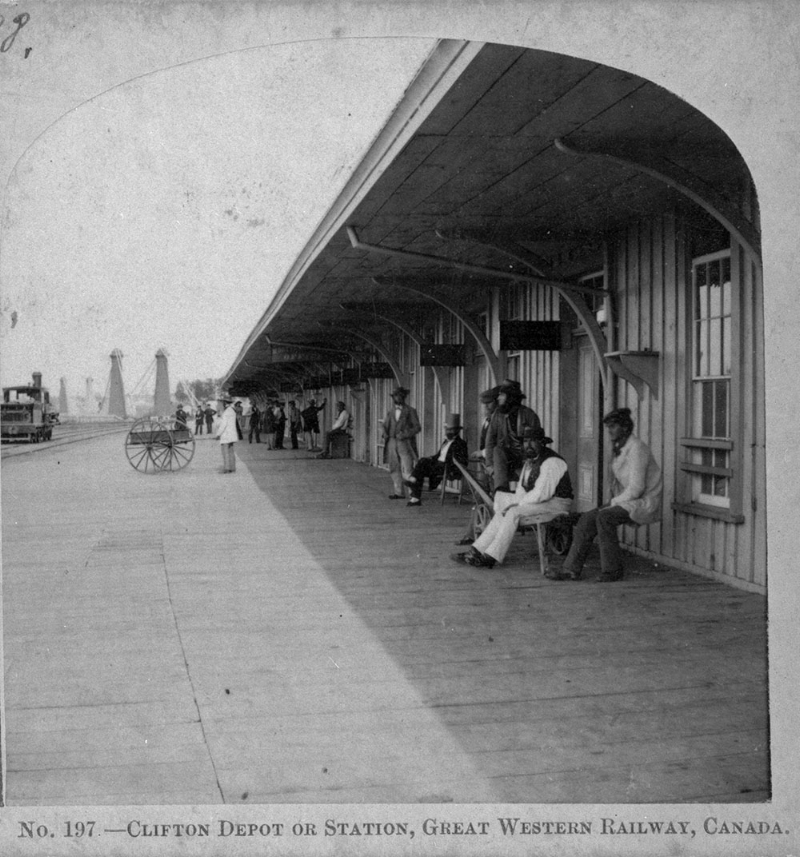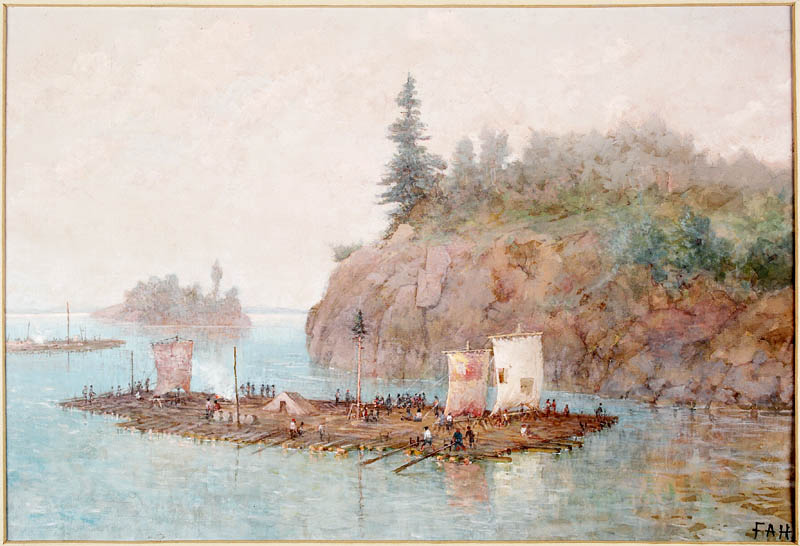FINANCE MINISTER’S BUSINESS DEALINGS
Following his re-election in Huntingdon, Hon. John Rose (Finance) addressed concerns about his business dealings.
Rose said that he resigned his directorship with the Bank of Montreal prior to his swearing in as finance minister. He denied any association with the Hudson Bay Company save for having offered legal advice to some who happened to be connected with the company. As for the Grand Trunk Railway, Rose said he has not held any position with the company in ten years and does not own any stock in the company. Rose said, “if that Company dared to exercise any political influence in the House, I will endeavour to repress it.”
Despite his statement, the Liberal press in the form of the Globe denies Mr. Rose’s claims of independence, writing that the explanations “do nothing to allay the fears of those who dread to see the Finances of the Dominion under the control of a public man who, through his career, has been remarkable for being always on the side of the great monopolies. He is now in a position to do a great deal of mischief.”
HOUSE TO MEET ON SATURDAY
Hon. Mr. Rose has asked for a special meeting of Parliament on Saturday, December 7, at which he will deliver his financial statement.
The statement, which he had intended to deliver yesterday, needed to be delayed in order to allow time for the printing of the various statements of income and expenditure for the members. Those statements will be printed and distributed on Friday night, certainly no later than Saturday morning.
Mr. Rose will then deliver his statement at 2 o’clock which will also address the Governments’s measures relating to Custom duties and internal revenue.
CABINET COMMUTES DEATH SENTENCES
During its meeting yesterday, the cabinet considered the appeals of three criminals sentenced to hang later this month.
John Frederick Christian Benedek tried before Chief Justice Draper of Waterloo was convicted of rape and sentenced to be hanged on December 20, 1867. The sentence was converted to life imprisonment on the recommendation of Sir John A. Macdonald (Minister of Justice and Attorney General) (1867-0152).
The cabinet also commuted the death sentence of Jonathon George. George was tried and convicted of rape before Justice Morrison in Essex. He was sentenced to hang on December 24 but the sentence was converted to life imprisonment on the recommendation of Sir John A. Macdonald (Minister of Justice and Attorney General) (1867-0153).
Ethan Allan was convicted of the murder of Cornelius Driscoll after a trial before Justice Hagarty in Frontenac. A petition for Royal Clemency was rejected and Allan will hang on December 11 (1867-0156).
COMMONS PROCEEDINGS
The Commons yesterday debated a report of the Printing Committee, submitted by Alexander Mackenzie (Liberal, Sarnia), which proposed a scheme for the official reporting of the debates of the House of Commons. The scheme would allow members to correct errors in speeches and would see 2,000 daily copies printed and 500 bound copies at the end of each session, with translation of speeches into both English and French, at a maximum cost of $12,000 per session.
Some members expressed concern that the reporting of debates would encourage members to speak longer than absolutely necessary to which Joseph Dufresne (Conservative, Montcalm) said “the best possible safeguard against long speeches would be absolute verbatim reporting” which drew laughter from some honourable members.
Mr. Mackenzie said he would move a motion on the matter in the coming days.
RED RIVER RESOLUTIONS
Hon. William McDougall (Public Works) moved, and the House debated, the resolutions relating to incorporating the Northwest Territories into the Dominion. The mismanagement of the Territories by the Hudson Bay Company was seen as one of the arguments in favour of bringing the Territories into the Dominion, as posited by Hon. John Gray (Conservative, Saint John City and County), the beginning of which is reprinted as reported:
Mr. Gray said if any doubt had rested on any gentleman’s mind as to the propriety of passing these resolutions, he thought that doubt must have been removed by the speech of the member for Hants. That honourable gentleman had admitted the fertility and value of this territory. He had pointed out in the most powerful language that the Hudson’s Bay Company had sat as an incubus and curse on the country, and he had declared that England would not expend a farthing to maintain our rights.
If that was the case, could we in fairness leave our fellow countrymen in the Red River settlement and in the Saskatchewan Valley, to remain under the curse of Hudson Bay rule, without laws, without enjoyment of liberty, and not do what was in our power to extend to them the blessings we enjoyed ourselves?
The Hudson’s Bay Company found a defender in Macdonell Simpson (Conservative, Algoma). Simpson said the HBC had not neglected the Indians of the North West before going on to state that he had a familiarity from boyhood with the “Indians of the far West” whom he said were “quite incapable of receiving civilization.”
Readers will recall that Mr. Simpson’s election has been protested as having been secured only following the disenfranchisement of Indians in that district.



















